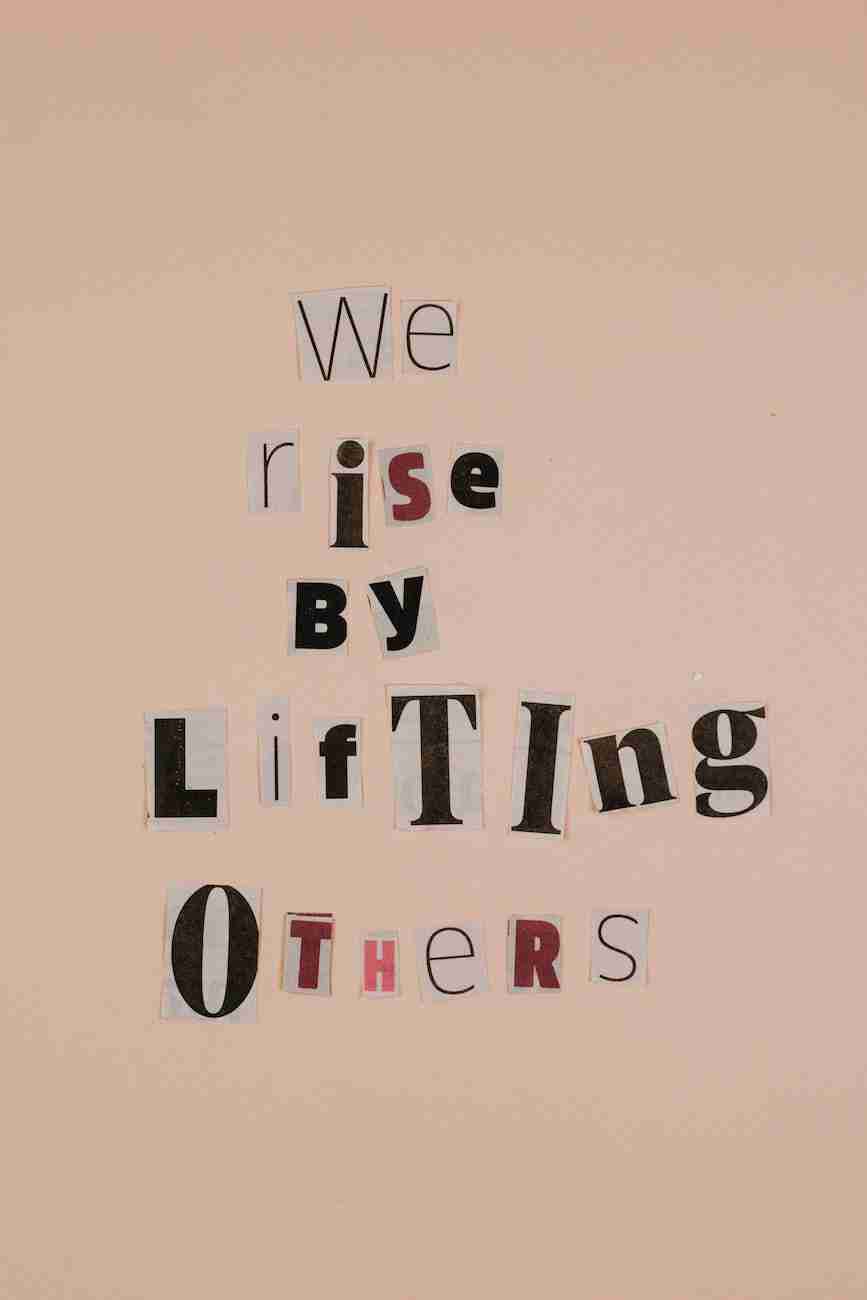
Abide as Being to Have Inner Peace and Transform Your Life by Awakening Spiritually
How to Awaken Spiritually and Find Inner Peace?
Be Still and Know.
Abide as Being – see the difference between a human being and a human doing; being is what you are; doing is how you appear.
Spiritual Awakening is unbelievably simple and so obvious that it is missed. It is the switchover from doing to being.
The secret of the universe is an Open Secret – it is standing as Presence/Being and Welcoming. Have you ever felt like the world around you was spinning too fast and out of control? That it was impossible to keep up with all the pressures, expectations, and daily tasks that life throws at us? It can be overwhelming– but there is hope. You can find inner peace and transform your life through awakening spiritually.
Whether you believe or not, we are all connected by something larger than ourselves – that connection is being; it is not being something – it is being itself.
By tapping into the connection of being, a spiritual awakening flowers whereby we gain clarity in our lives, break free from the mundane routines and live from the understanding of who we truly are. It provides a deep sense of purpose as well as harmony within oneself, which is enjoyed as true happiness and contentment.
How to Awaken Spiritually – How does this transformation happen? Abiding as being is not truly a transformation, yet it is described as such because it is a vastly different way of being than the way we have been conditioned to live by our global culture.
Abiding as being is the only step required to awaken spiritually. From there other practices like meditation, yoga, yoga nidra, tai chi, and qigong are ways that help keep us centred and grounded.
On a practical level, these activities help reduce stress and anxiety, increase resilience, and cultivate a greater sense of well-being. There are many other activities that can be done to enhance well-being, such as journaling, spending time in nature, listening to music, and engaging in creative activities. Taking time to focus on the present moment, being kind to oneself and others, and engaging in activities that make one feel good can all help to bring about a greater sense of peace and calm.
Through awakening spiritually, one begins their journey to self-discovery; finding answers to questions they never knew existed while connecting with their own intuition on an entirely new level. In doing so, these revelations lead to personal growth and transformation which ultimately creates more positive outcomes in every area of life.
Ready to embark on your spiritual journey as being? Let’s dive deeper into what spiritual awakening has to offer!
Definition Of Spiritual Awakening

As stated earlier – abiding as being is the only step required [it is not truly a step, because you do not have to go anywhere or do anything to abide as being] to awaken spiritually. It is a shift of attention. Instead of looking to gain something that we feel we lack, we attend to what we already are and live from that ground. Then there is no longer seeking, which is a movement away from being, there is nothing lacking, and we enjoy an ease of being.
However there is still lots to do. I share many of these things in this article and through my website. Note that this article acknowledges the globally-held perspective of deriving identity via the content and activity of the mind, which is the case for the vast majority of human beings who have been conditioned in this way since childhood. That conditioning tells you that you need to find who you truly are and to do that you need to meditate, engage in spiritual practices or seek the guidance of a guru etc., – yet when you switch attention from doing to being, you see that as being you do not need anything that you don’t already have. [You don’t need to read further if you live the key point, which is abiding as being is the only step required to awaken spiritually – from there practice Welcoming]
Spiritual awakening is a considered to be a process of self-discovery and transformation that enables us to experience our true purpose in life. It helps bring clarity to the very essence of who we are and flowers as an inner peace that transcends this physical realm. At its core, spiritual awakening is an exploration of one’s soul, which can reveal deep insights into the meaning of life and how it intersects with our own personal journey.
The definition of awakening spiritually varies depending on individual beliefs. Generally speaking, it refers to a conscious switch away from focusing solely on materialistic desires towards understanding and appreciating the deeper aspects of existence. This may include discovering a sense of connection and belonging within the universe at large or exploring the power of meditation and mindfulness practices as ways to access higher states of consciousness.
A way to awaken spiritually is to practice mindfulness. This involves being present in the moment and focusing on your breath. You can practice mindfulness by taking a few minutes each day to sit in silence, focusing on your breath and noticing the thoughts and feelings that come up.
And, you can practice mindful activities such as walking, journaling, yoga nidra, and listening to music. When you practice mindfulness, you can observe how your thoughts and feelings affect your sense of inner peace. As you become more aware of your inner world, you can learn to accept and release any negative or unhelpful thoughts and feelings that are blocking your awakening.
At some point there is a switchover from attending to things like the flow of your breath and thoughts to abiding as being. This is the threshold of awakening.
For many people, spiritual awareness is essential for unlocking their full potential and creating meaningful relationships with themselves, others, and nature. As such, embarking on a path toward spiritual transformation can be highly rewarding – both spiritually and emotionally – providing profound insight into one’s inner world while cultivating an abiding sense of inner peace. To explore further benefits will require delving into what exactly makes up true awakening…
Benefits Of Spiritual Awareness

“We are not human beings having a spiritual experience;
we are spiritual beings having a human experience.”
– Pierre Teilhard de Chardin
Spiritual awareness opens up a world of possibilities for personal transformation and inner peace. By learning to connect with the spiritual realm, we can gain insight into our deepest selves and find the harmony that lies within us all. Spiritual healing brings balance to mind, body, and soul which leads to mental clarity and improved self-awareness. Through this process of spiritual growth, we are able to tap into our higher consciousness and become more in tune with ourselves on an emotional level.
Exploring beliefs and values is also part of growing spiritually aware. It requires us to examine what truly matters most to us as individuals. This introspection allows us to better understand who we are at our core – leading us closer to the switchover towards inner peace. As we assess these fundamental parts of our personality, it gives rise to greater understanding about how we interact with those around us and bring positive change into our lives.
This practice of abiding as one’s true identity by attending to being, often reveals hidden gifts or talents that were previously untapped due to fear or lack of knowledge. With spiritual awakening comes both acceptance and empowerment – allowing each individual the opportunity for limitless potential in life. Moving forward…
Exploring Beliefs And Values

We all have our own unique set of beliefs and values that shape the way we live our lives. Like a tapestry intricately woven together with colourful threads, they are at the very core of how we appear and how we interact with others. By examining and exploring these deeply held convictions, we can begin to uncover inner peace and transform our way of being to awakening spiritually.
- Take time for self-reflection: Spend some moments alone in order to gain clarity on your current beliefs and values.
- Compare them to what you were taught growing up: Ask yourself if any of those early lessons still apply today or need tweaking in light of your ever changing life circumstances?
- Acknowledge areas where growth is needed: Identify any limiting beliefs that might be holding you back from reaching your full potential.
- Abide as being, see beliefs and values from that perspective.
It’s not always easy to confront our hardwired mindsets, but doing so can lead us down a path towards greater understanding about ourselves and the world around us. The process may take some courage and effort, however it will ultimately bring us closer to achieving true fulfillment when coupled with developing self-awareness.
Developing Self-Awareness

Developing self-awareness is an essential part of making the switchover to awakening spiritually. It involves reflecting on our internal thoughts and feelings, as well as understanding how they affect us. This process helps to develop a deeper understanding of one’s emotions, beliefs, values and motivations.
The key to developing self-awareness lies in being honest with yourself about your innermost desires and fears. Taking some time out for reflection can help you identify patterns of thinking that are not beneficial to your growth or well-being. By becoming more aware of these patterns, you can begin to make conscious choices that bring greater peace and harmony into your life.
Again, abide as being and note how you function in all areas of life from this view-point.
In order to gain a better understanding of how you appear, it is important to cultivate openness within yourself. Allowing yourself to explore new ideas without judgment will give you the freedom to discover parts of yourself that may have previously been hidden from view. Through this reflective journey, you can learn more about who you truly are as being, and, find clarity regarding what brings meaning and joy into your life.
Discovering Emotional Intelligence

Joan was a successful businesswoman. She had plenty of money and an impressive resume, but something wasn’t quite right in her life. No matter how hard she worked or what goals she achieved, Joan couldn’t seem to find the inner peace she yearned for. That’s when she decided to try discovering emotional intelligence as way to transform her life.
Emotional intelligence is the ability to understand and manage our own emotions, as well as recognize and respond appropriately to other people’s feelings. It involves recognizing our own emotions, understanding where they come from, being able to communicate them effectively, and managing them in a healthy manner. It also involves having empathy for others by reading their cues and responding accordingly.
| Emotion | Understanding | Managing |
|---|---|---|
| Happiness | Recognizing it within yourself | Expressing it constructively |
| Anger | Identifying root causes | Responding with self-control |
| Sadness | Differentiating types | Treating it with kindness |
| Fear | Understanding its purpose | Channeling into productivity |
With this knowledge, Joan set out on a journey of discovery, learning how best to identify her emotions while developing new strategies that would help her better manage them. She began exploring different techniques such as mindfulness meditation, yoga, yoga nidra, journaling, and positive affirmations which helped her gain greater control over her responses and reactions during difficult situations. With practice, she soon found herself better equipped to handle anything that came her way.
Joan slowly started seeing progress in all areas of her life – not just professionally but personally too. As she became more emotionally aware and adept at managing her feelings, she unlocked the secret of finding internal balance and lasting contentment from within herself instead of looking outside for approval or validation . This newfound understanding fuelled further exploration into becoming more mindful about every aspect of life – both good and bad – allowing her to make conscious choices rather than relying solely on instinctive reactions.
Becoming More Mindful

Being mindful means abiding as being.
Becoming more mindful is a powerful way to foster the shift to inner peace and transform your life. It starts with cultivating self-awareness through practices such as mindful living, yoga, yoga nidra, meditation, or journaling.
Mindful living helps you become aware of the present moment by noticing what’s happening inside and around you without judgment. This allows you to be in tune with yourself and become observant of how your thoughts, feelings, and behaviours interact with each other.
Mindful meditation is another great practice for becoming more mindful. Through this practice, we stand as being and learn to observe our thoughts rather than getting caught up in them. We can also use it as an opportunity to cultivate gratitude for all that we have in our lives. Practicing mindfulness has been linked to improved mental well-being, better relationships, enhanced creativity, and reduced stress levels.
By engaging in these self-awareness practices regularly, we develop new perspectives on situations while deepening our understanding of ourselves. With regular practice comes greater clarity about who we truly are and why we feel the things that we do – ultimately leading us closer towards the switchover of finding inner peace and transforming our lives.
How to Awaken Spiritually – Cultivating Self-Compassion

Did you know that almost 60% of people feel they are not living up to their own standards? It can be difficult to look at ourselves in the mirror and accept all our flaws, but self-compassion is a powerful tool in transforming this negative outlook. Cultivating compassion for yourself can have remarkable effects on your mental and emotional well-being.
Self-love and acceptance are key components in developing self-compassion. Take time out each day to focus on positive aspects about yourself; rather than dwelling on what you don’t like or perceive as mistakes, make an effort to appreciate who you really are. Allowing yourself more room for error will help reduce feelings of guilt or shame when things don’t go as planned.
Reframing, and the shift of attention from doing to being changes how we regard situations and are important factors that foster self-compassion. Instead of blaming ourselves or feeling sorry for ourselves when something doesn’t work out, try asking ‘What did I learn from this experience?’ Taking responsibility for our actions helps us become better individuals while maintaining respect for ourselves.
When we practice cultivating self-compassion regularly it allows us to move forward with improved resilience and inner balance. The next step towards transformation is connecting with nature—a way to gain further insight into one’s spiritual journey…
Find Inner Peace – Connecting With Nature

Connecting with nature is an important part of the switch to awakening spiritually. It allows us to connect with the beauty and power of the natural world around us, while also connecting with our own inner peace. Here are three ways to do so:
- Nature Awareness: Abide as being and take time each day to observe and appreciate your surroundings. Pay attention to the colours, sounds, scents, textures, and shapes that make up the ecosystem you’re a part of. Witness how life interacts in harmony within it – from birds soaring overhead to trees swaying in the wind.
- Nature Appreciation: Abide as being and spend more time outdoors engaging with nature through activities like walking, running, gardening or even just sitting quietly in a park or nearby woodland area for a few minutes each day. Be present – taking note of details as if seeing them for the first time – which will help cultivate gratitude towards all aspects of nature’s glory.
- Nature Connection: Abide as being and look beyond physical experiences when exploring outdoor spaces by tuning into quieter moments such as meditating near a stream or reflecting under a canopy of stars at night. Connecting on this deeper level can bring forth profound insights about yourself and your relationship with nature – leading to greater self understanding and personal growth.
These practices not only bring joy but offer perspective on what really matters in life; helping to foster meaningful connections between ourselves and our environment that can last a lifetime.
Finding Meaning In Life – Abide as Being

Nature provides us with a sense of belonging and comfort. It can give us an opportunity to reflect on the beauty of life and look inside ourselves for peace and understanding. But how do we find meaning in our lives? How do we use what nature has given us to unlock deeper purpose, fulfillment and direction?
The answer lies within spiritual awakening and abiding as being. Awakening spiritual is about realizing that being is what we truly are.
It is that awakening that sees how we appear as our inner selves, it unveils the truth about who we already really are, and it develops balance between our physical and mental health.
Awakening spiritually means to tap into something far beyond our physical world; it’s about tapping into energy that transcends time, space, and formlessness. We must learn to let go of any attachments or beliefs that no longer serve us so that we can truly experience a state of peacefulness and contentment that is always available as being.
Practicing meditation and contemplation allows us to work through difficult emotions while developing an understanding of how they affect our daily lives. Through these practices, we can uncover hidden potentials within ourselves—connecting deeply with our true essence as being – and discover newfound joy in living authentically as our true selves.
By engaging in this kind of self-exploration, we become better equipped to handle life’s challenges with grace instead of fear. In doing so, we gain clarity around why each moment matters and begin to live more intentionally as opposed to merely enduring life passively until death arrives.
We all have the capacity to awaken spiritually by attending to being, yet it takes commitment and dedication to overcome our conditioned ways before its full potential is realized. With regular practice comes greater insight into the power behind finding purpose, fulfillment, direction, balance – and ultimately transforming your life by embracing your inner peace!
Practicing Meditation And Contemplation

Meditation and contemplation are two powerful practices that help us make the switchover to awakening spiritually and abiding as being.
Both of these practices allow us to access the inner depths of how we appear, enabling self-reflection on a much deeper level than we normally experience. When practiced regularly, these activities can bring about profound changes in our lives that help us find greater peace and harmony with ourselves and those around us.
A meditation practice begins by sitting quietly and focusing on one’s breath or a mantra. This type of activity encourages stillness which allows us to observe what is happening within without judgement or expectation.
Over time, this kind of mindfulness brings awareness to how thoughts, emotions, sensations, and memories come into play in life’s daily experiences. Through developing an understanding of oneself through meditation, it becomes easier to accept whatever arises in each moment as part of our overall journey towards growth and transformation.
Contemplation takes another approach. It involves reflecting deeply upon ideas such as love or truth so that they become more meaningful aspects of life rather than mere concepts. These types of meditations often involve dialogue between oneself and spirit guides or other divine beings who can offer insight into personal dilemmas or questions we may have about spirituality in general.
Through either form of practice – be it meditation or contemplation – the goal is ultimately to abide as being. And one gains greater knowledge about the nature of reality, including one’s place within it all.
With this newfound understanding comes the ability to move forward with more clarity and confidence in life’s endeavors, leaving behind any feelings of doubt that may have previously been blocking progress from occurring. Moving ahead with intent leads naturally into exploring creative expression – whether through art, music, writing or anything else!
Exploring Creative Expression

Meditation and contemplation are like a gateway to inner peace. By taking the time to abide as being, to be still and explore, we open ourselves up for new possibilities of transformation. Exploring creative expression is an excellent way to further develop this shift as part of our spiritual awakening journey as it allows us to tap into our imagination and cultivate creative growth.
The artistic exploration process begins by giving yourself permission to express your feelings through any form of creative outlets such as painting, writing, music or cooking; anything that resonates with you personally.
Allowing yourself the freedom to create will ignite your creativity and help you discover more about yourself in the process. As you start exploring what feels natural for you, don’t forget to enjoy the journey! Appreciate each step along the way – even if something doesn’t turn out how you originally envisioned it – because success isn’t measured by perfection but rather by effort put forth towards personal growth.
With practice comes mastery so don’t be discouraged if things feel challenging at first. Creative expression is its own unique language that takes time and patience to learn. The most important thing is having fun while nurturing your creativity!
Once you are comfortable enough in tapping into your imagination, try sharing your ideas with others who have similar interests; connecting with others can provide invaluable insight into creative problem solving techniques which could ultimately lead to greater understanding of self-expression.
Connecting With Others

Connecting with others is an important part of the move to awakening spiritually. Developing strong relationships and social connections can provide emotional support and help us find inner peace.
The following 3×4 table compares the benefits of connecting with others versus not doing so:
| Benefits | Connecting With Others | Not Connecting With Others |
|---|---|---|
| Relationship Building | Yes | No |
| Social Support System | Yes | No |
| Emotional Connection | Yes | No |
| Inner Peace & Understanding | Yes | No |
When we stand as being and connect with other people, it helps us learn more about ourselves by reflecting on our experiences in life. This allows us to gain clarity on how we want to proceed on our journey of personal growth and transformation. It also provides a sense of belonging, which gives us the courage to be vulnerable and open up about our feelings without fear or judgement from those around us. Plus, having someone to talk to during difficult times helps keep our spirits lifted as we work through any challenges that may arise along the way.
By forming meaningful relationships with people who understand and appreciate our unique perspectives, we are able to create deep bonds that bring out the best in all parties involved. Through this process of relationship building, we begin to let go of attachment to outcomes while simultaneously learning valuable lessons along the way.
Letting Go Of Attachment To Outcomes

Forsaking fixation with outcomes can be a formidable feat for many of us. We often become so attached to the result we desire that it becomes difficult for us to focus on our spiritual journey switchover to find inner peace. By letting go, however, we free ourselves from the burden of attachment to expectations and open up possibilities in our lives.
It is crucial to recognize when we are becoming too fixated on a result and instead remind ourselves that true growth comes from within. This process begins by allowing ourselves time to reflect and reset emotionally before taking action. In moments of stillness, we allow ourselves to reconnect with our authentic selves, ultimately leading us closer to spiritual awakening and personal transformation.
We must remain mindful of any attachments we have created in order to move forward to the switchover of finding inner peace and living holistically.
When we set aside these preconceived notions of what success looks like or how things should turn out, we create room for genuine exploration without the pressure associated with achieving an outcome.
Instead, this space allows us to accept whatever may come our way while giving ourselves permission to continue striving towards meaningful change even if perfection isn’t immediately achieved. As such, choosing positive habits over unhealthy ones helps guide us further along our spiritual journey as well as cultivate greater self-awareness and understanding.
Choosing Positive Habits

Now that you have let go of attachment to outcomes, it’s time to focus on choosing positive habits. Habits are powerful forces in our lives and can quickly shape us for better or worse. To live a life of peaceful inner transformation, we must consciously choose healthy habits.
The first step is identifying the unhealthy habits that have been holding us back from reaching our highest potential. We may be unaware of these patterns, but they exist in our daily lives. From food choices to how we interact with others – all contribute to our overall health and wellbeing.
Once identified, start replacing those negative behaviors with ones that support your shift to awakening spiritually. This could include anything from taking up yoga to journaling each day or even spending more quality time outdoors.
Another important factor when considering which habits will help you reach your goals is sustainability over the long term. If a habit isn’t sustainable or enjoyable, then it’s not likely to become part of your regular routine.
Start by setting small achievable goals so that success feels attainable and manageable while also giving yourself grace if you don’t always meet them perfectly every single time. With practice, patience, and dedication these new life habits can rapidly transform into second nature and ultimately bring peace and joy within ourselves as well as throughout our environment.
Living a life of gratitude will build upon this foundation providing a source of strength during moments of challenge along the way towards achieving the switchover of awakening to the true nature of being.
Living A Life Of Gratitude

We are all blessed with unique gifts, opportunities and experiences that shape our lives. Fostering an attitude of gratitude is one of the most powerful tools we have to make the switchover to inner peace and transform our lives. When we practice grateful reflection on a daily basis, it helps us appreciate everything around us, from small joys to big blessings.
A great way to cultivate a sense of gratefulness is by engaging in meditations focused on gratitude. Whether you take five minutes each morning or spend twenty minutes at night reflecting on what you’re thankful for, dedicating time to this practice can help unlock a deep wellspring of positivity within yourself.
This simple exercise can immediately shift your mindset away from self-pity towards appreciation and contentment.
Realizing how much you have to be thankful for has far-reaching effects beyond just feeling happier; studies show that people who regularly practice gratitude experience better physical health, increased mental clarity and improved relationships with others.
Grateful reflections also encourage us to take action; when we’re reminded of the abundance in our lives, it builds confidence and motivation to make positive change happen.
By embracing an attitude of thankfulness every day, we open ourselves up to moments of profound insight and transformation as we strive for personal growth. Taking the time to recognize these moments allows us to tap into something larger than ourselves—an awakening that brings about lasting inner peace.
Common Questions
What Are The Best Ways To Start the Journey of Awakening Spiritually?
Getting started on the journey of awakening spiritually can be daunting and overwhelming. How do you even begin? Fortunately, there are many practices that can help to guide individuals on their inner journey of self-reflection and spiritual growth. Here are some of the best ways to start your spiritual awakening:
- Abide as being. See that as being there is nothing lacking and nothing to accomplish as that is what you already are.
- Meditate – incorporate meditation into your daily routine. Meditation is an effective way to gain insight into yourself and become more aware of your thoughts and feelings without judgment.
- Make time for self-care activities like journaling or engaging in creative pursuits such as painting or drawing. These activities allow us to express ourselves in ways we may not have previously explored, helping us to understand our needs better.
- Spend time in nature; being surrounded by natural beauty will help open up your senses and bring about a sense of peace and calmness within yourself. Additionally, getting out into the fresh air helps clear our minds from any stressors or worries we may be carrying with us.
- Seek guidance from teachers, mentors, friends, books – anything that resonates with you! Having someone who has already been through this process before can provide invaluable insight and support when needed throughout your journey of spiritual exploration.
There is no end to the beginning. There is only one step, which is to abide as being, yet there is the entire journey of life to explore from there.
How Can I Tell If I Am Experiencing An Awakening Spiritually?
When embarking on a spiritual journey, it can be difficult to know if you are experiencing the shift to awakening spiritually. However, there are tell-tale signs that suggest that you are headed in the right direction. It’s important to pay attention and recognize these signals in order to benefit from the transformation invitation they represent.
One of the most common signs of an awakening journey that is unfolding positively is feeling more connected with nature and its cycles. You may start to notice how events in your life mirror those happening around you in the natural world – like plants blooming or thunderstorms rolling through. This connection gives rise to feelings of peace and contentment within yourself as well as towards others.
Other signs include:
- Increased awareness:
- Being aware of what triggers certain emotions within yourself
- Noticing patterns in your thoughts and behaviours
- Heightened intuition:
- Having moments where everything seems clear and obvious despite not having any logical explanation for why it feels that way
- Being able to sense when something isn’t quite right even before being able to see it or understand it fully
- An ease of being
These signs point toward the switchover to an inner transformation, one which brings about increased clarity and understanding of oneself and the world around them. To ensure that this process leads towards healing rather than distress, it’s important to practice self-care by taking time out for rest and relaxation so that you can stay open to all the new insights coming your way while also giving yourself space and permission to take things slow if need be.
How Long Does It Take For An Awakening Spiritually To Take Effect?
It happens in an instant, as it is a switchover of attention from doing to being.
In this Light…

Awakening spiritually is a powerful and trans-formative shift from doing to being. It brings inner peace and help us to find our place in the world. Anyone can make the switch to spiritual awakening, because it simply means to abide as being, which is already the case.
Studies have found that around 85% of people who experience the shift to awakening spiritually report feeling more connected to themselves, others and the universe as a whole than before.
My own experience with awakening spiritually confirms this statistic. What is so amazing is that it is so simple and that it has always been available. Like many others I was conditioned to believe that I lacked something and that I had to seek to find something that would make me complete. Today I experience the same challenges as everyone else, yet by standing as my homeground of Being and Welcoming, I do not experience anything as problematic.
No matter your circumstances or beliefs, if you’re looking for life-changing growth and transformation, embracing this switchover from doing to being is the greatest accomplishment of your life, and, simultaneously it is the greatest gift that you can give so-called others!
Switch from Doing to Being – Well said!